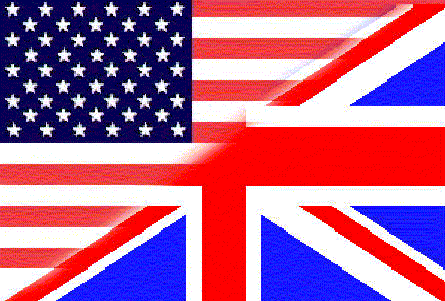
President Obama’s speech came at the wrong time.
Barack Obama’s speech in London, with all its political pronouncements, should not be interpreted literally. We know that the words were just words to hide something else and almost always reveal something else, which is also to be hidden. When one tries to hide the true meaning of his or her pronouncements it never works. This speech was out of time, and it is reminiscent of Teddy Roosevelt’s speech at the turn of the 20th century.
Obama went to London in order to tell the British that the two world powers — who both come from the same presumptuous island — will continue to rule the world. Even in the late 16th century, the English started sending their people over to America before the New England colonies existed — after the Spanish fleet, which had been considered invincible, was badly defeated. The British naval action, coupled with strong winds and the high waves of the English Channel, were too much. England’s supremacy was confirmed in the 19th century at Waterloo. The fact that the U.S. president considered it important to reaffirm this domination shows that he finds himself sinking.
The president committed a serious political mistake, perhaps because he became a ghostwriter and ignored many of the European countries. He did not directly mention countries such as Germany and France but only referred to them as “our allies.” Ultimately, England and the U.S. are the owners of the world. The other countries — no matter how powerful they are — are merely allies. Brazil and the other emerging large country members of BRIC (Brazil, Russia, India and China) are mentioned as being incapable of threatening the global supremacy of the Washington-London axis. We don’t believe Brazil has come to challenge the world “leadership.” Rather, a more appropriate approach for a strong country would be to not compromise the potential of developing countries through acts of conquest. Strong armies, a solid economy and permanent institutions are necessary conditions to ensure domestic freedom and to guarantee national interests throughout the world. But if this advantage was only used in foolish endeavors, the consequences would be disastrous in the short and long term. In the lives of each one of us, and in the lives of nations, the best choice is to not lead, but neither is it a good option to follow the leadership of others. We should let other countries rule themselves and be fierce defenders of our own freedom.
Along the same line of reasoning, we are witnessing another example of soppy arrogance from Christine Lagarde, the French candidate for the position of Director of the International Monetary Fund. When asked what she thought about the prospect of the one of the emerging countries substituting for ex-director Strauss-Kahn, said she believes the institution should stay in European hands. She said that for the past two years it has been said that, within the International Monetary Fund, whoever pays is in charge. The way she sees it, the idea is that the institution is not international; rather, it belongs to a handful of countries that play as if they are the owners of all of the world’s money. If this is Mrs. Lagarde’s criterion, then now is the time for new leadership within the International Monetary Fund.
Today, the emerging countries are the main creditors in the world. China, Russia, India and Brazil together hold the largest world reserves while the United States and the majority of European countries are the biggest international debtors. The United States’ public and private debt is nominally $50.2 trillion dollars (three times its gross national product). This figure does not account for the trillions upon trillions of dollars that are unaccounted for circulating throughout the entire world. In this case, it’s China and the other members of BRIC who are footing the bill, directly or indirectly.
With all its arrogance, Obama’s speech is empty: The only power that Washington, London and their allies in NATO have is war, and they find themselves mixed up in wars in Iraq and Afghanistan.
If all that matters is who pays is in charge, then Brazil, Russia, India and China should abandon the International Monetary Fund and establish a new institution which serves them.

Leave a Reply
You must be logged in to post a comment.